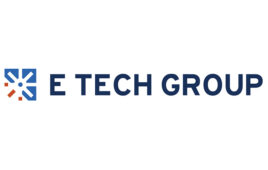Ken Fine, co-founder and president of Proven Process, is a popular man these days. Not a week goes by without Fine entertaining flirtations from private equity investors or potential strategic partners, looking to see if he's ready to cash out of his business after 21 years.
Proven Process is a Mansfield, Mass.-based contract manufacturer providing engineering and manufacturing services for companies in the implantable cardiovascular space. It employs 85 workers, has a great reputation, a solid book of business and is still run by its three founders. In short, to a new breed of investors looking to mine this subset of the medical device industry, Fine's company is the equivalent of a pretty girl at the bar or the guy by the jukebox with the six-pack abs.

Brian Johnson |
Publisher | Medical Design & Outsourcing |bjohnson@wtwhmedia.com |
To private equity, medical device contract manufacturers like Proven Process represent a great opportunity for a “roll-up,” business-speak for the practice of combining 2 to 3 mid-sized companies to create a larger enterprise. For these investors, the sometimes quiet $50 billion industry represents a major opportunity. “I think they still see medical device contract manufacturing as a growth opportunity,” Fine tells me. “The medical device market is still growing, it's still relatively immature, and there's still a lot of room there.”
Consolidation is the name of the game these days. In 2014, there were more than 57 mergers among medtech manufacturers, according to an analysis by MassDevice.com. That's 16 more buyouts than the 41 deals logged in 2013, a 39% increase.For medical device manufacturers, the drivers for consolidation echo conditions in the larger market, not just favorable borrowing rates, higher valuations and pent-up demand from the recession. Starting in earnest in 2011, the hospital sector has been consolidating like crazy, and some say this is just the start. In five years, the hospital industry we know today could be dramatically different, according to Trish Hannon, president & CEO of Boston's New England Baptist Hospital.
“Consolidation in the provider industry is growing rapidly, because the cost structures can't be borne by the revenue streams,” Hannon said recently at the annual meeting of the Mass. Medical Device Industry Council. “If you fast-forward five years from now, there are 4,000 hospitals in the country and that number will change drastically. The only way to survive is through consolidation.” Fine says investors are letting him know that the M&A market for contract manufacturers is just as frothy, reaching levels not seen since the 2007 recession.
In recent months, Fine says, he's seen Proven Process contemporaries such as The Aubrey Group sell to Sparton Corp., and Rhode Island-based Ximedica enter into a recapitalization deal with SV Lifesciences.The facts bear out Fine's anecdotal evidence: There is a great deal of activity in the space. For the 10 largest contract manufacturers specializing in medical devices, thereâs been an uptick in M&A activity over the past 24 months. The list of high profile deals in contract manufacturing space includes:
- Jabil Circuits buying Nypro for $665 million in 2013;
- Private-equity-backed Tecomet acquiring Symmetry Medical's OEM business in 2014 for $450 million;
- Accellent spending $390 million for Lake Region Medical (and taking the company's name the process) in 2014;
- And TE Connectivity Ltd. acquiring AdvancedCath for $190 million.
Other deals of note include Flextronics buying RIWISA and Stellar Microelectronics in 2013 and Creganna-Tactx buying Precision Wire Components in the fall of 2014. In this kind of environment, it may be tempting for Fine to take a spin around the dance floor, but he insists that business is too good right now to sell.
That doesn't mean he doesn't listen, however, and he's always paying attention to what's happening around him. After all, there may come a day when a suitor appears whose offer is simply too good to refuse.




